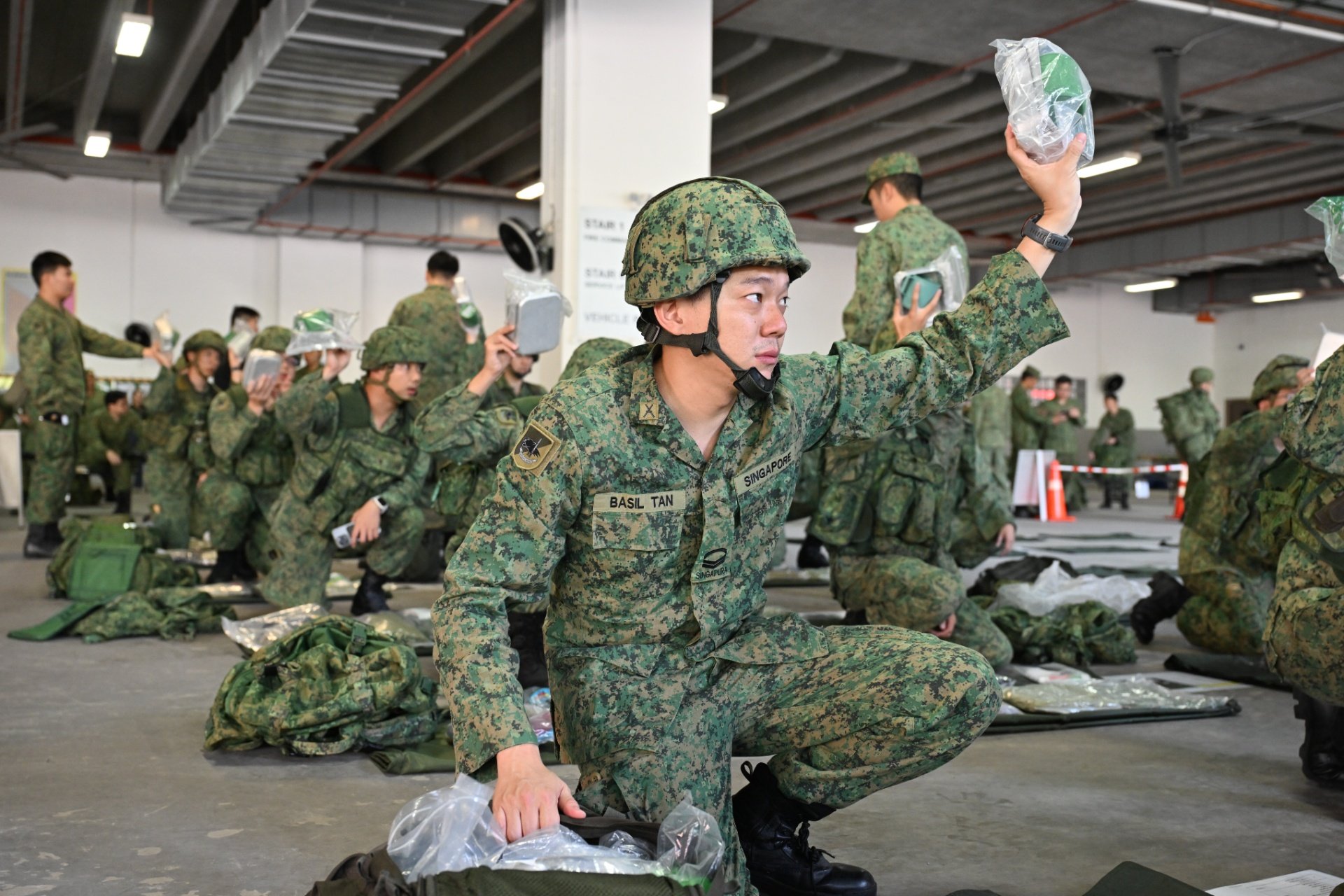OPS & TRAINING
DEFENDING S'PORE SKIES DURING COVID-19
01 Sep 2020
Donning masks, cohorting arrangements, isolation in camp – life has changed for the airmen and women of the Republic of Singapore Air Force (RSAF) amid the COVID-19 pandemic as they continue to watch over the skies and do their part for the community.
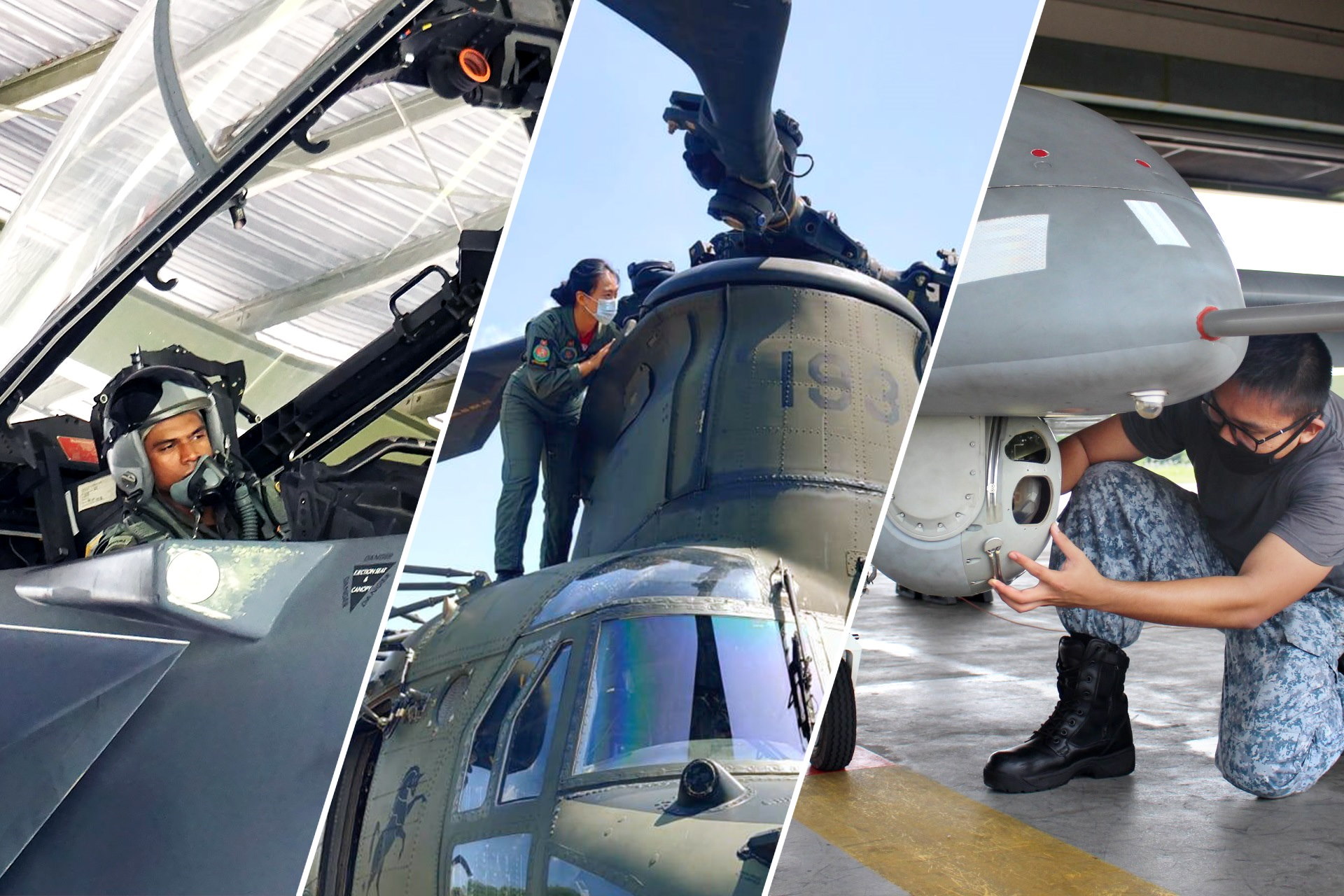
When COVID-19 struck, many were caught off guard. But one thing remained clear: the defence of Singapore had to go on.
The RSAF quickly rallied its people, putting in place cohorting and isolation arrangements to keep them safe.
This meant that RSAF personnel had to make hard sacrifices such as staying away from their families for weeks on end. But they remained dedicated in their efforts to safeguard Singapore - whether from base or in the skies.
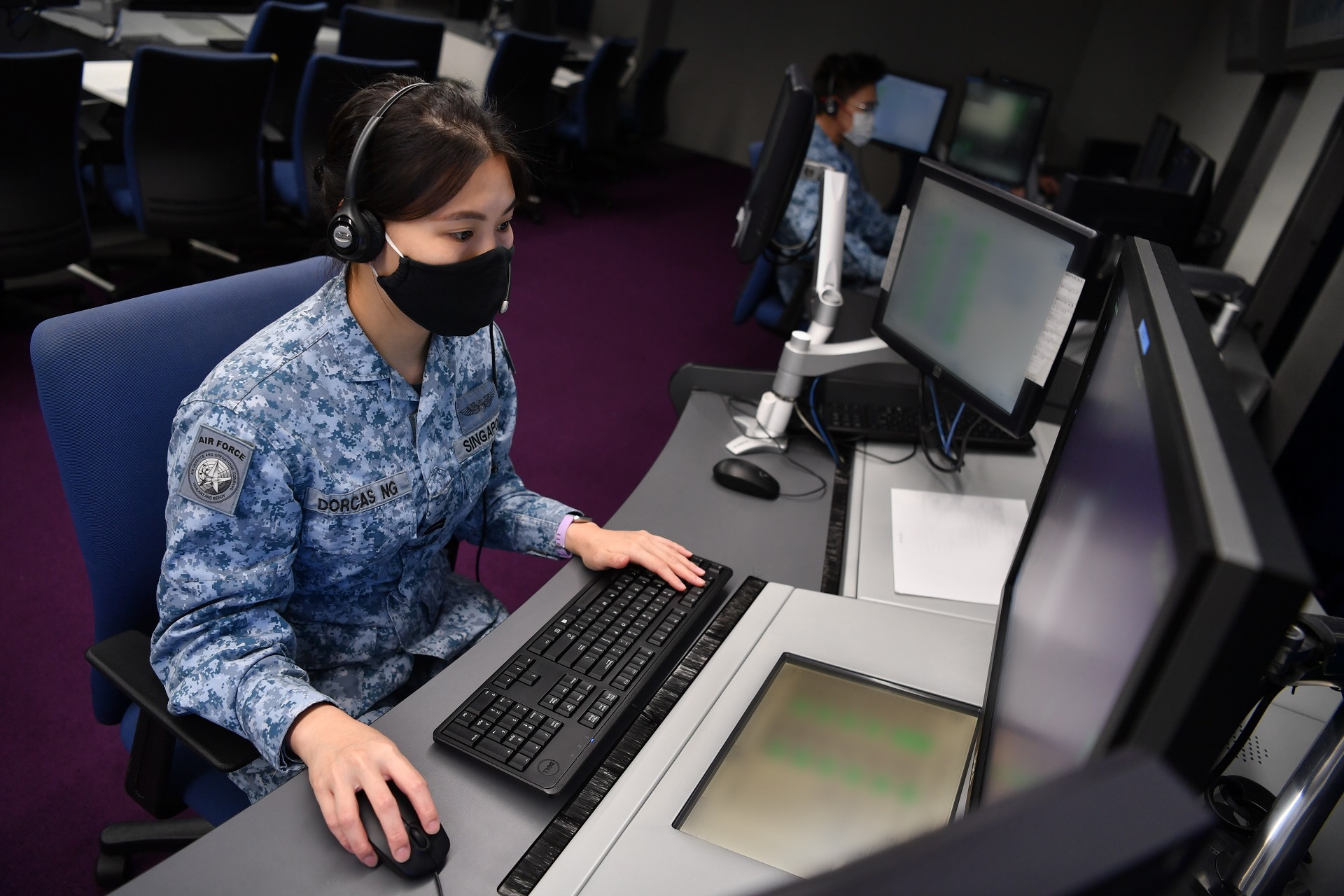
Watching the skies 24/7
When the circuit breaker period was announced in April, Lieutenant (LTA) Dorcas Ng was among the many RSAF personnel who went into isolation in order to continue doing their duties.
The Air Warfare Officer - Air Battle Management Controller from 200 Squadron (SQN) stayed in base for two weeks at a time - for close to three months - to reduce the risk of infection in critical operational units.
"During a crisis, it is crucial that we do our best to strengthen Singapore's defence and deter any potential threats," said the 25-year-old, who monitors Singapore's skies for potential air threats.
The squadron has kept up cohorting and other safety measures, such as safe distancing and the frequent sanitisation of their workplaces, even after the nation exited the circuit breaker period.
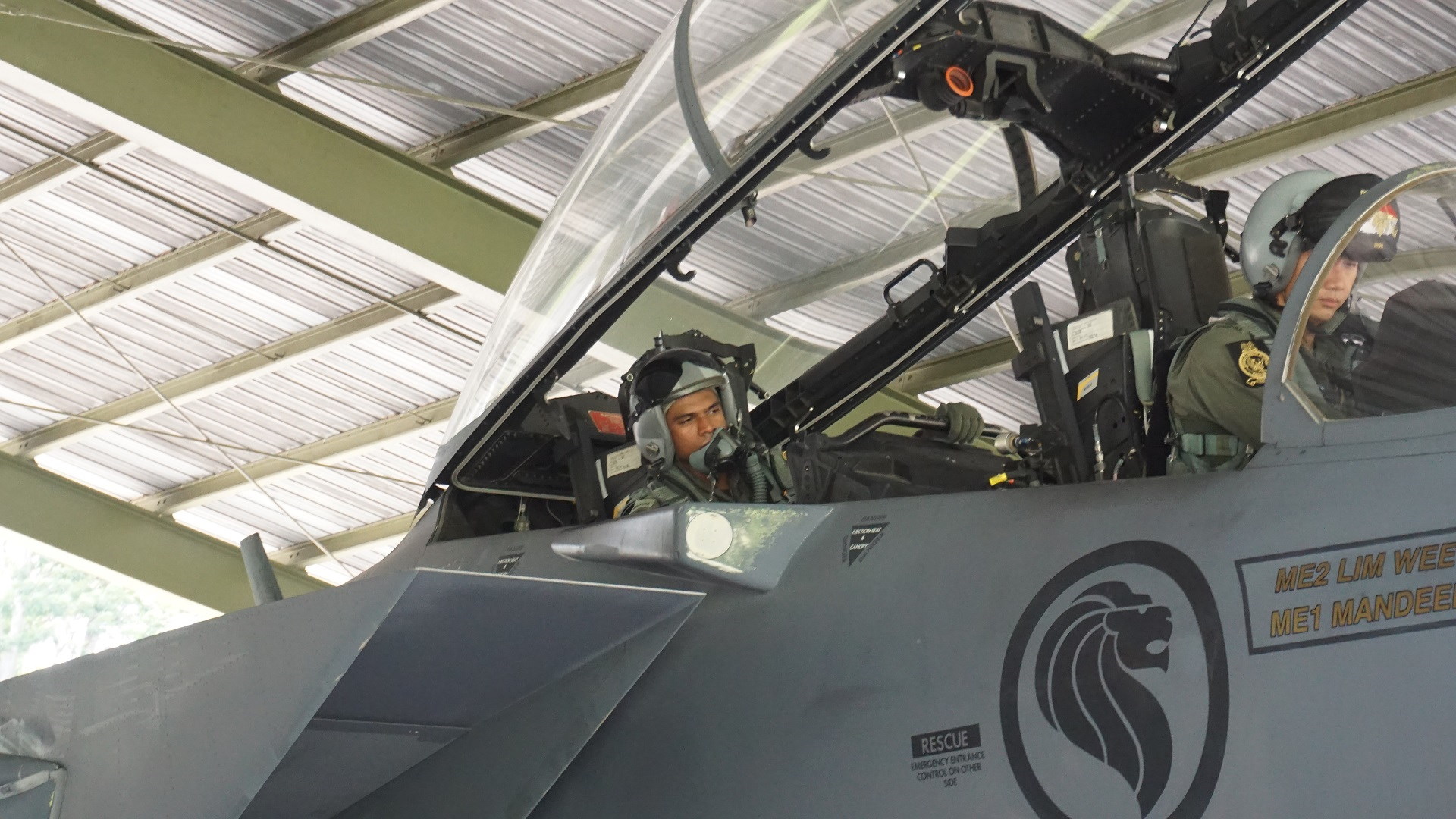
Staying operationally ready
Inevitably, the pandemic has affected personnel's schedules and their personal lives.
As an F-15SG Weapon Systems Officer (Fighter), Captain (CPT) Dineswaran S/O Singaraveloo has to work closely with his flight crew during pre-flight mission planning and post-flight debriefs, as well as the logistics crew to maintain readiness of the aircraft.
Being cohorted into different teams meant that instead of face-to-face discussions, they tap on technology such as video conferencing to discuss flight plans, exercises and work processes.
Thankfully, the trust and synergy that the crew have built up over the years has kept their teamwork strong.
While it may be hard to adapt to these strict safety measures initially, they are "necessary for ops continuity," said the 31-year-old from 149 SQN.
"A single lapse may end up compromising an entire cohort and jeopardising our operational capabilities. It is important for us to remain fighting fit at all times."
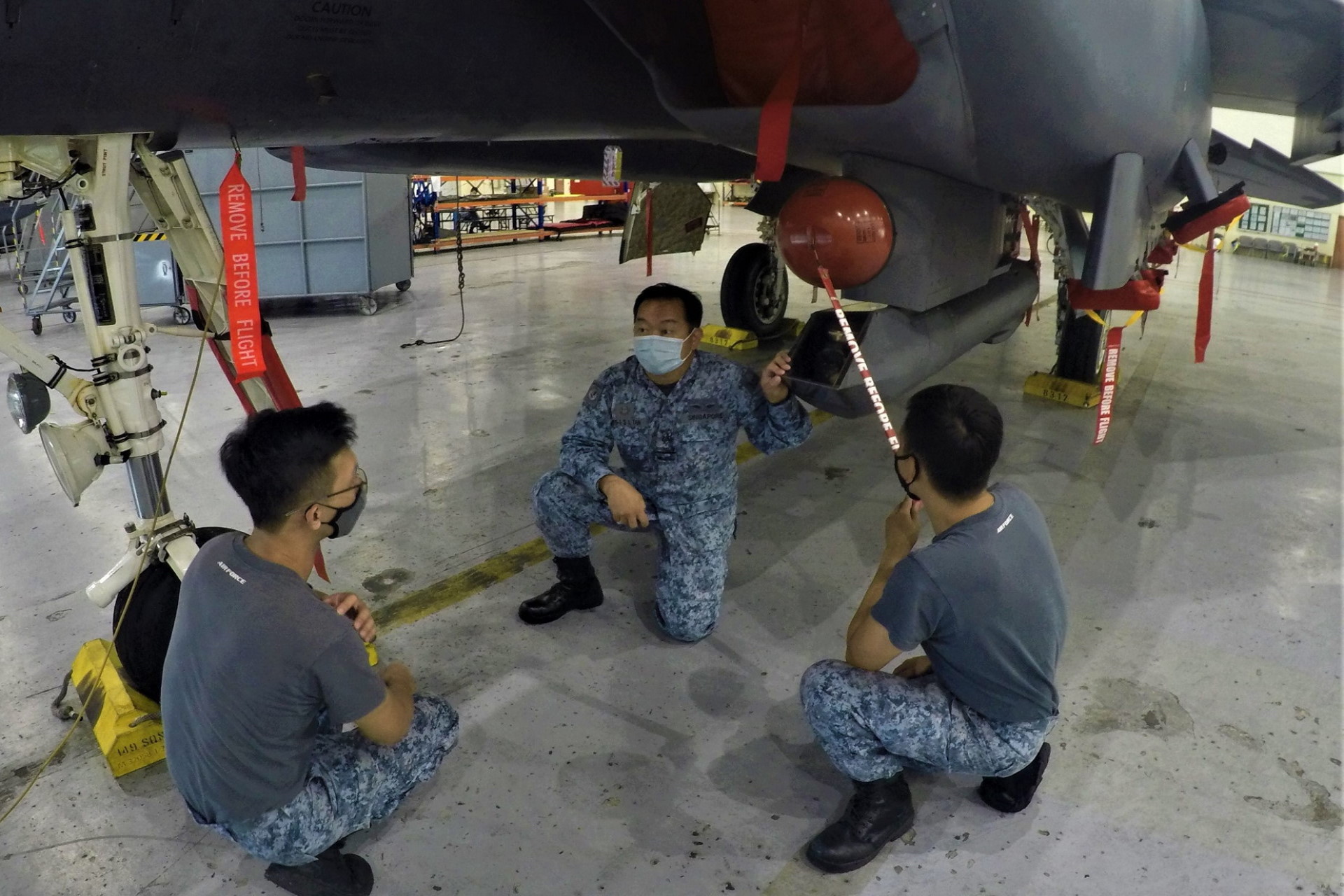
Keeping morale high
During the circuit breaker period, Military Expert (ME) 5 Tan Seow Lim was on the ground often to engage personnel who had to be isolated in base to support critical functions. These include airfield and aircraft maintenance, ground logistics, control operations and force protection.
Their work is often behind the scenes, but is critical in keeping base operations running and aircraft flying high.
The Base Command Chief from Paya Lebar Air Base (PLAB) monitored the morale of personnel and even had counsellors on standby.
"To keep spirits high, we have to ensure that their needs are met, such as catering WiFi connection for them to make video calls to their families in specially prepared areas in base, as well as delivering food items for unit personnel."
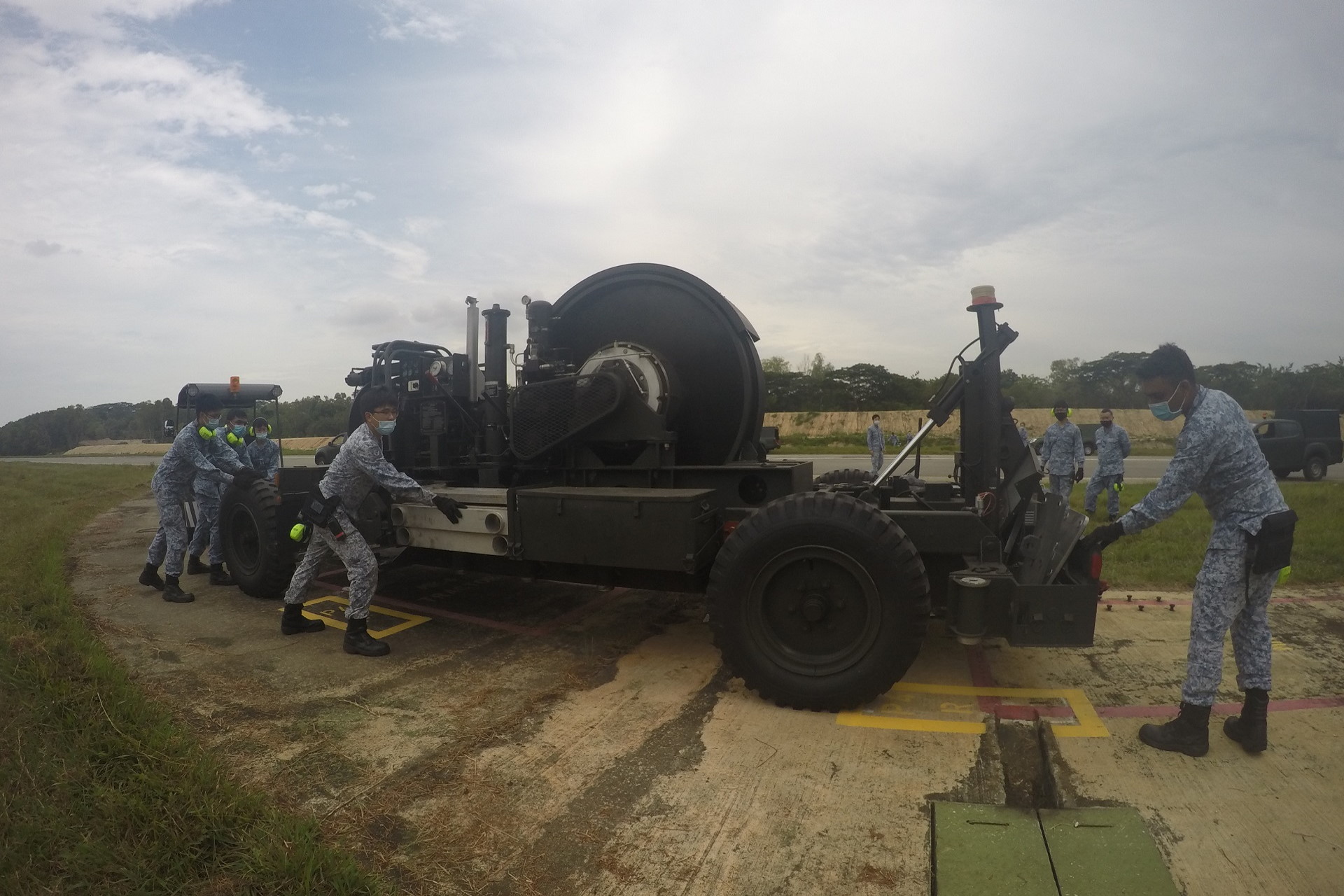
Thankfully, base personnel understood the situation and were appreciative of ME5 Tan and his team's efforts. Everyone worked together to ensure that base operations were not affected.
"Like it or not, COVID-19 is here to stay for a while, and all of us must continue to adapt to new working norms... We must be able to rally our people to overcome (any challenges) together," said ME5 Tan.
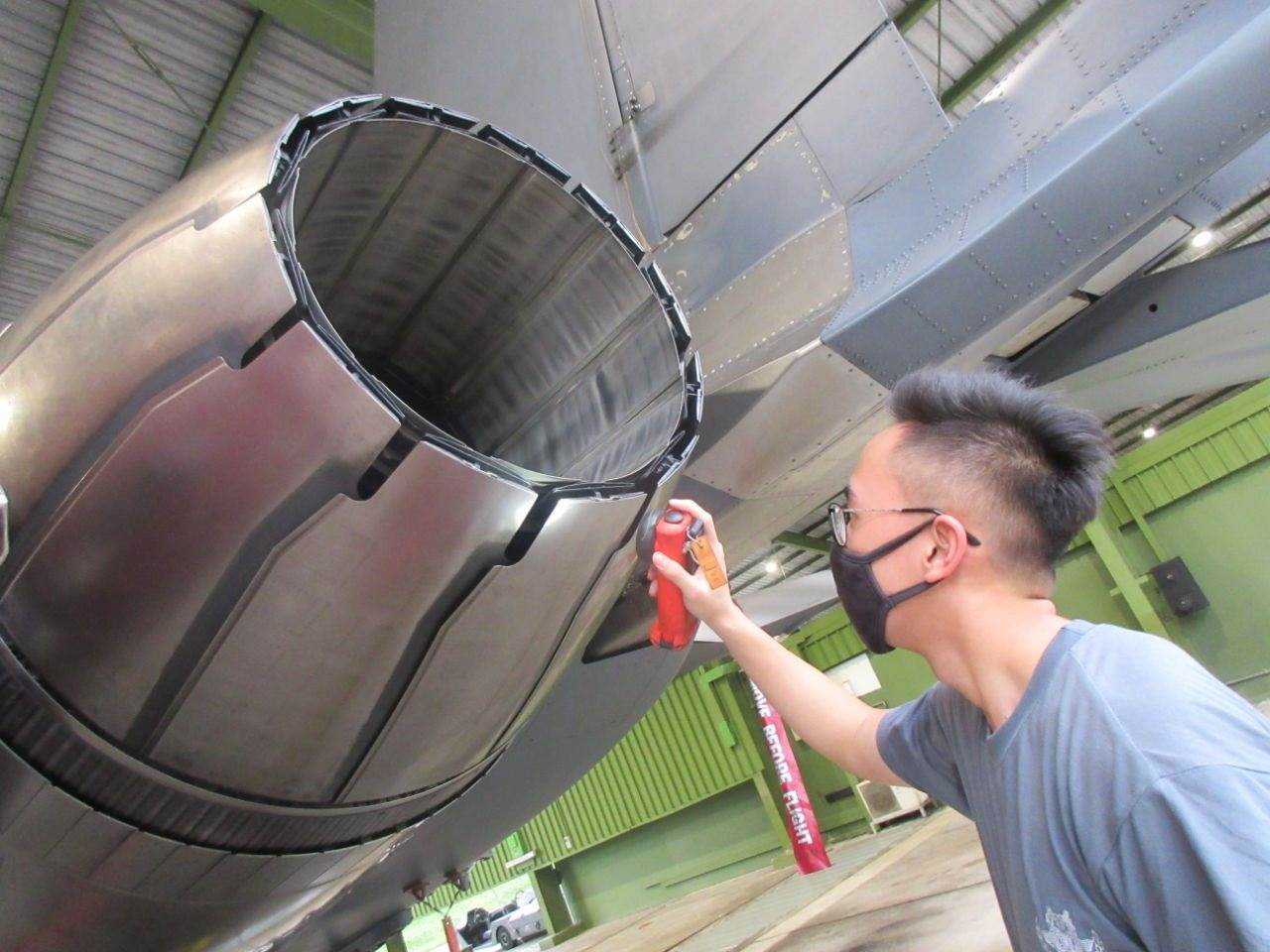
Rising to the challenge
Some airmen and women have also stepped up to take on more duties during these tough times.
For example, 3rd Sergeant (3SG) Loh Yi Kuang, an Air Force Technician, mainly performs general maintenance tasks and repairs on the F-15SG.
During the circuit breaker period, however, the 20-year-old Full-time National Serviceman (NSF) found himself taking on more responsibilities as an assistant controller in the Maintenance Operations Control Centre (MOCC) at the Integrated Maintenance Flight.
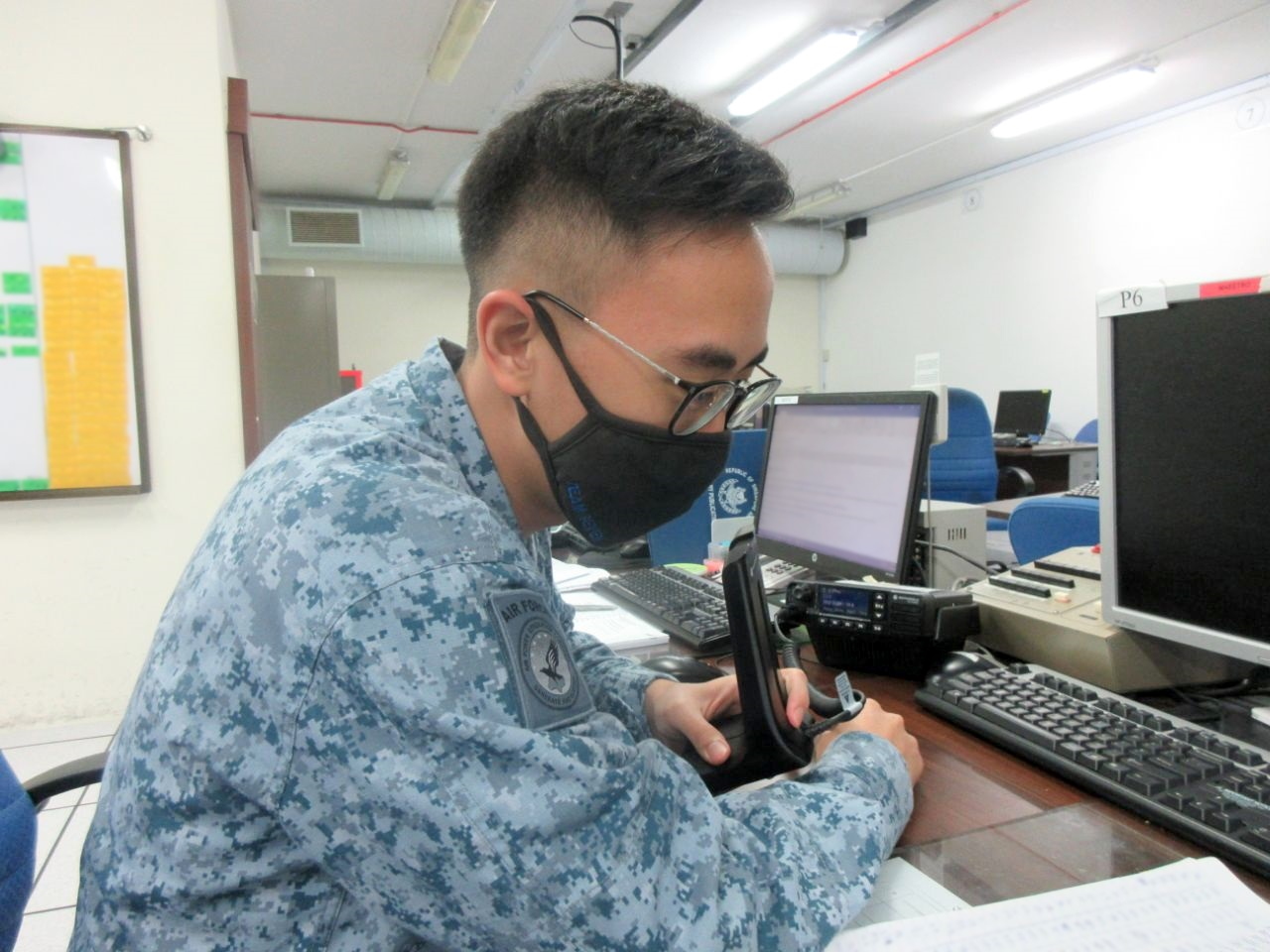
Due to cohorting measures, most Regulars were deployed on the ground to support aircraft rectifications. Thus, NSFs like 3SG Loh helmed the administrative operations in the office at the MOCC.
"This was no easy task, and maintaining close communication was essential so that everyone was in-sync and knew when and which aircraft were in good condition for operations," said the NSF from 807 SQN.
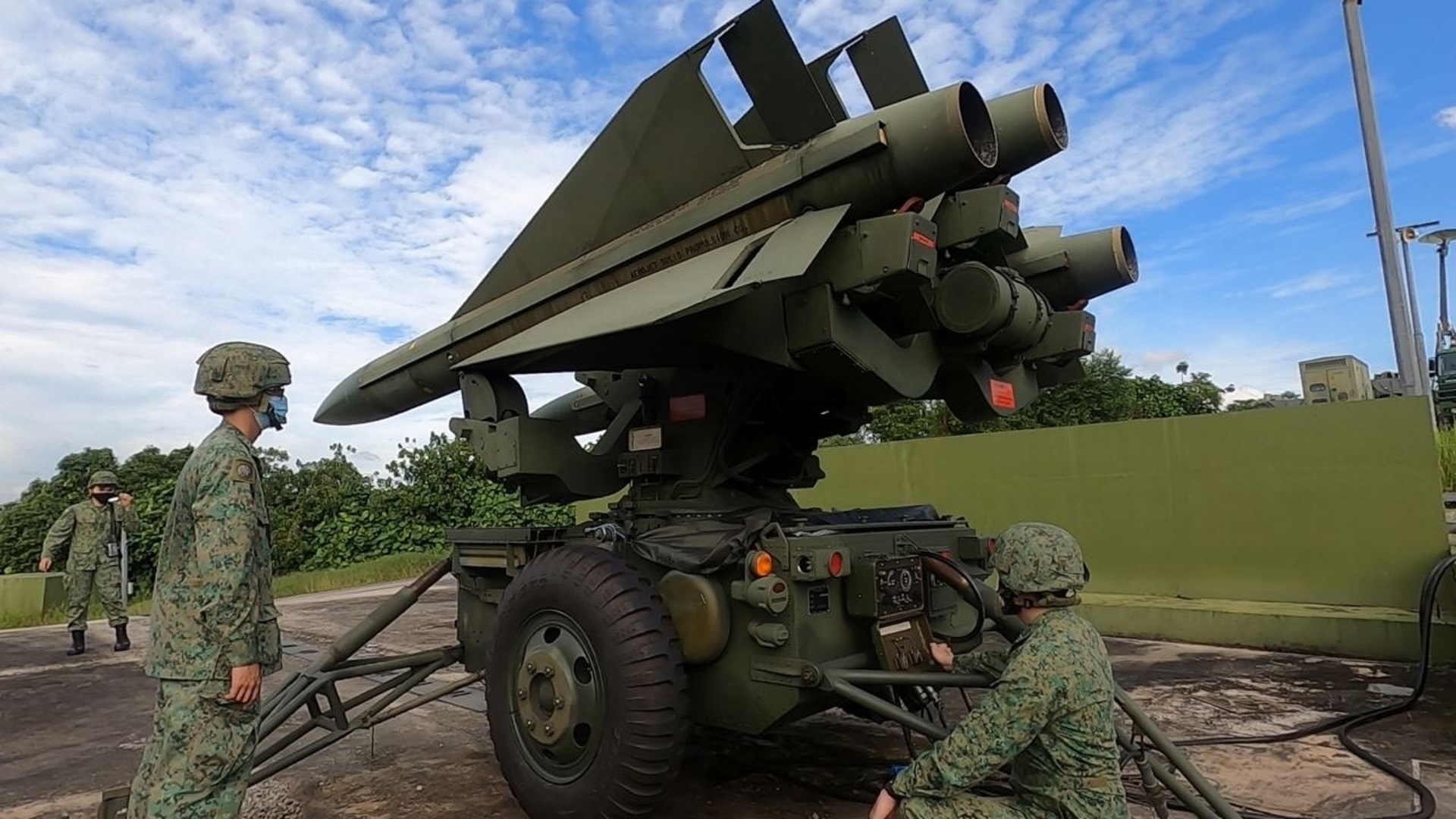
Doing our part for the nation
As Singapore moved into Phase Two of reopening after the circuit breaker period, In-Camp Training (ICT) also gradually resumed.
Corporal First Class (CFC) (NS) Ng Wei Xian, 33, was among the Operationally Ready National Servicemen (NSmen) who were called back. An Air Defence Weapon Operator, he is part of a team that operates the I-HAWK surface-to-air missile system in 163 SQN.
Wearing masks during their training can be challenging at times, especially when they had to carry out physically demanding tasks such as transporting and deploying the I-HAWK, said CFC (NS) Ng.
The father of two-year-old twin boys also had to stay in camp throughout his latest ICT, held from 13 to 30 Jul.
But he took it all in his stride. "Our roles as NSmen require us to be on standby and ready to ensure that air defence operations continue, even in the midst of a pandemic.
"I may be away from my family, but knowing I am actively contributing to the nation's and my family's safety is all that matters."
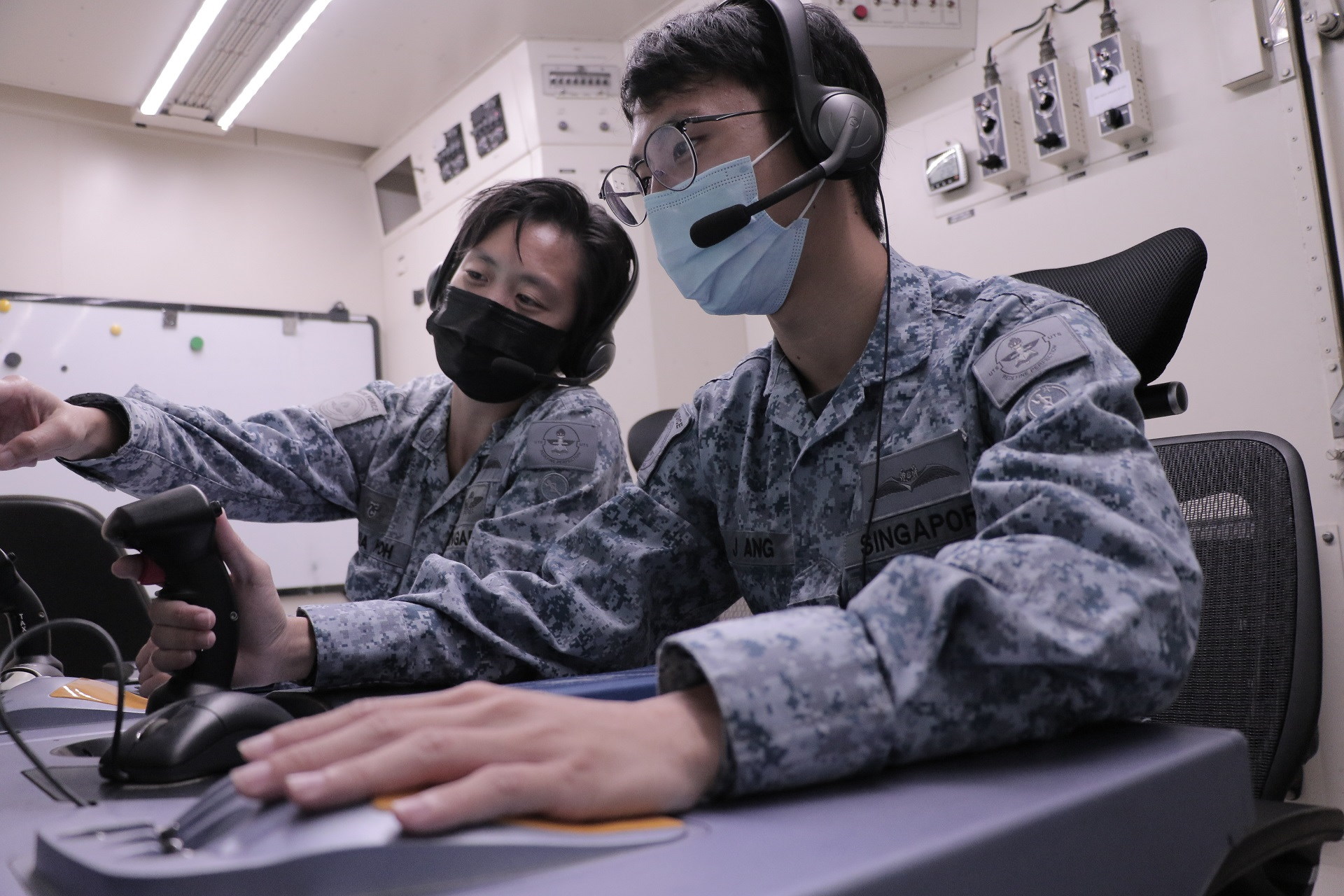
New training norms
Training also continued for Officer Cadet (OCT) Chester Ang, a UAV pilot trainee.
When the circuit breaker took place, many lessons moved online. It wasn't an easy transition initially for the instructors and trainees, as they had to adjust to new teaching styles and try out different tele-conferencing platforms.
For simulator training that has to be done in base, personnel must ensure that the control stations are wiped down and sanitised before handing over to the next batch. Trainees and instructors have also been cohorted into smaller teams.
Despite these adjustments, OCT Ang feels it is crucial to maintain their training currency.
"This allows us to remain conversant with our flying procedures… Being able to carry on and train hard also demonstrates the RSAF's readiness to continue protecting Singapore."
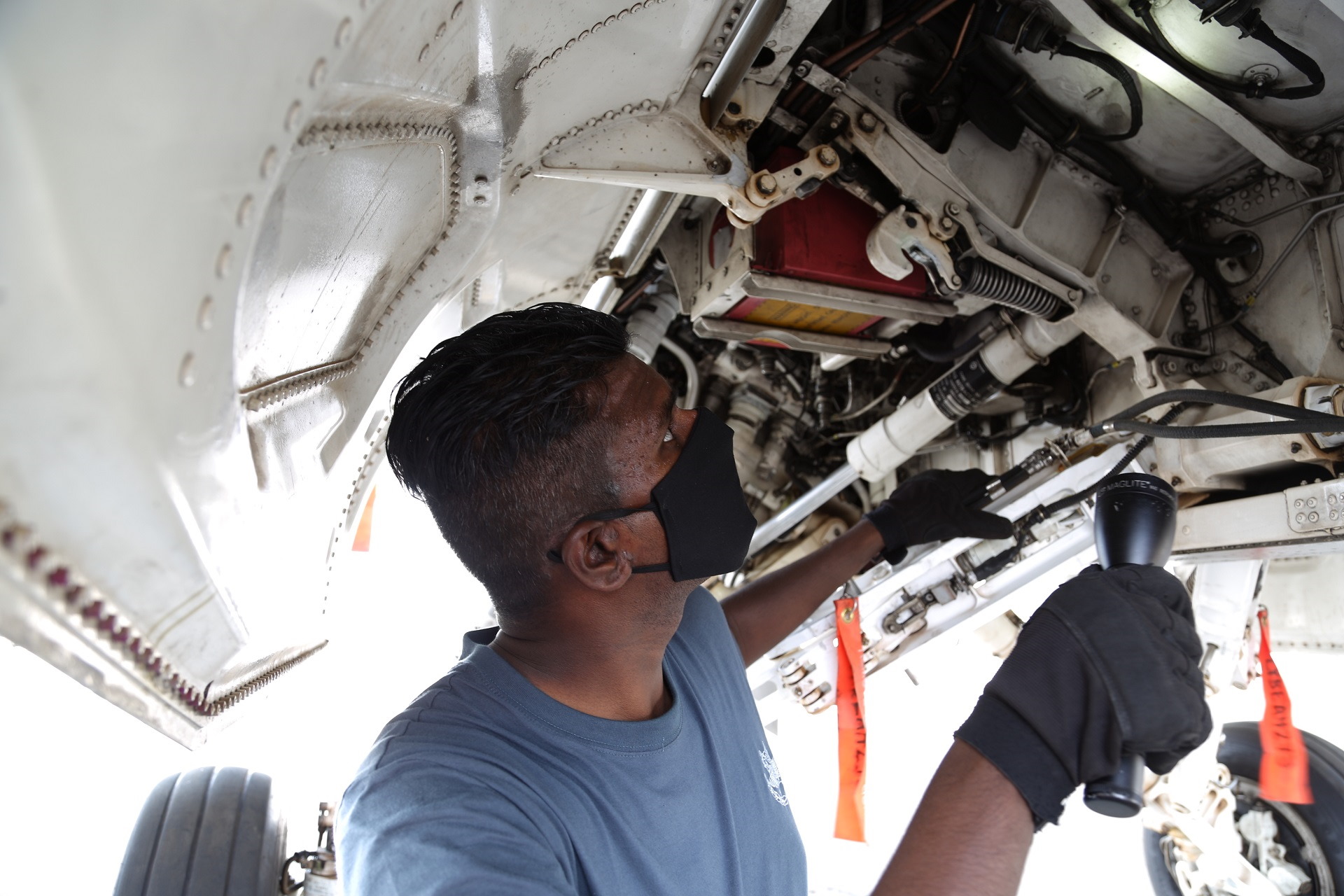
Honing skills abroad
Over at Peace Carvin (PC) II detachment in Arizona, United States (US), the pandemic has put a halt on air-to-air combat exercises such as Exercise Red Flag.
This was a disappointment for ME2 Balasubramaniam, 31, as his team was ready and looking forward to interacting and learning from other air forces during the exercise.
"But we will continue to train hard to be ready to participate in exercises when the opportunity arises again," said the F-16 Dedicated Crew Chief from PC II at Luke Air Force Base.
In the meantime, the ground crew are busy maintaining their proficiency through case studies and discussions, while observing and adopting safe management practices from the US Air Force.
Similar to the units in Singapore, personnel there have been cohorted into teams and practise safe distancing at work and donning of masks at all times.
Despite travel restrictions and stoppage of home trips, morale within the detachment remains high, added ME2 Balasubramaniam.
"We are keeping ourselves healthy and sustaining our flying operations at Luke Air Force Base."
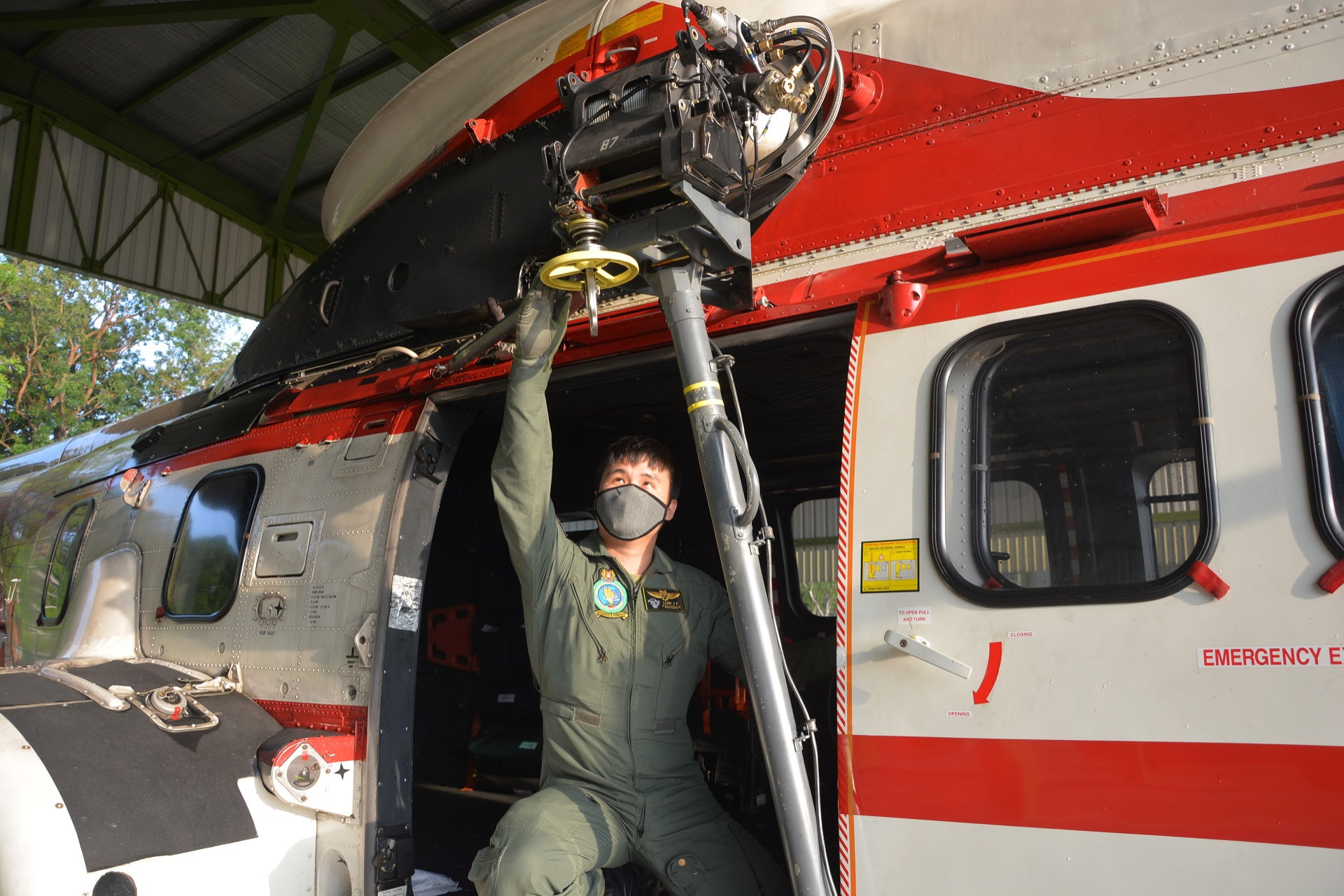
Saving lives
In addition to protecting Singapore's airspace, the RSAF is ready 24/7 to perform search and rescue missions. For 2nd Sergeant (2SG) Low Jin Feng, who is part of the Rescue 10 team, these operations have become tougher than ever.
For one, the Air Crew Specialist from 126 SQN has to don personal protective equipment such as surgical gloves and masks when winching a casualty up to the helicopter. This is to lower the risk of any possible infection.
"When I'm (doing something strenuous like) strapping up the casualty, the mask can make breathing uncomfortable," said 2SG Low. To overcome this, he runs regularly to boost his fitness and stamina.
This was not the only challenge the 22-year-old faced during the virus outbreak.
He had initially planned to get married in May, in preparation for the arrival of his newborn in November.
However, 2SG Low had to postpone his wedding as he had to go into isolation during the circuit breaker period. He was also unable to accompany his girlfriend for check-ups, and the couple relied on video conferencing to stay in touch.
"When I broke the news to my girlfriend, she was very understanding and supportive. She knows that what I do may one day save the lives of others," said 2SG Low, who will be getting married in mid-September instead.
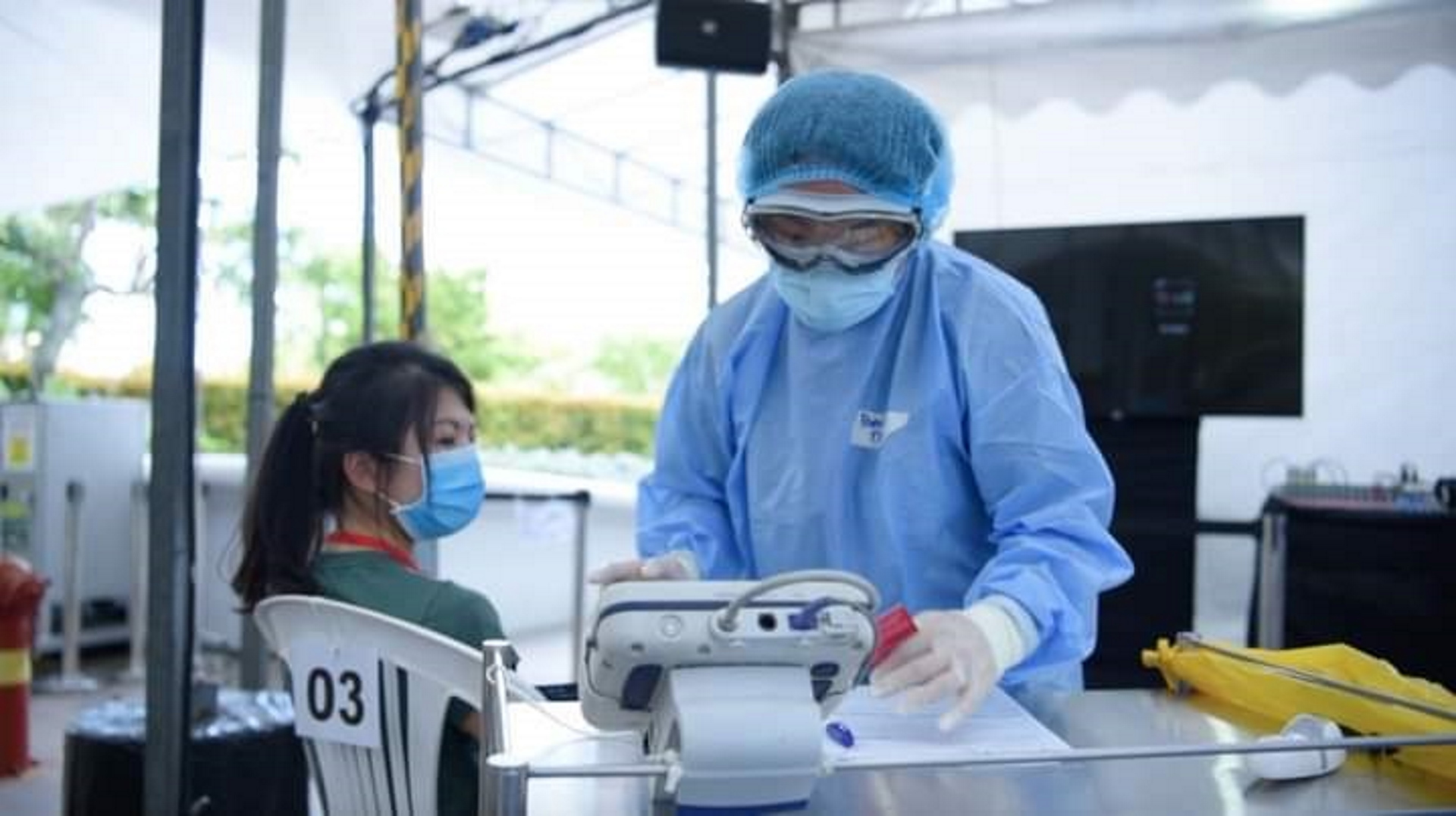
Joining the COVID-19 fight
Like many others, RSAF personnel are contributing in the battle against COVID-19.
ME2 Ng Bee Ling was among those who volunteered and was deployed to a screening facility at Ng Teng Fong General Hospital from mid-April to early May. Functioning like an emergency department, the facility mainly received migrant workers and people with flu-like symptoms.
As the team 2nd-in-charge, ME2 Ng would receive patients for tests and wait with them for the test results before allocating them to the next facility based on their test results.
The 40-year-old was then deployed to the Community Care Facility (CCF) at the Singapore Expo till the end of May, where she was a part of the nursing team. Together with other nurses from the Singapore Armed Forces, she coordinated the collection of swab specimens and took part in a large-scale vaccination due to a chickenpox outbreak.
Working 12 hours a day was mentally and physically tiring, but ME2 Ng found immense satisfaction in her work.
"The situation on the ground was changing every day...but the satisfaction of seeing patients recover and leaving the CCF in a healthy state made it worth the while," said the Medical Flight Lead of Divisional Air Defence Medical Flight, 1 Medical Squadron.
"Singapore is fighting a different war now. If I, having the relevant capabilities don't even offer (my help), our healthcare facilities will ultimately be overwhelmed. Every effort makes a difference."
ALSO READ IN OPS & TRAINING
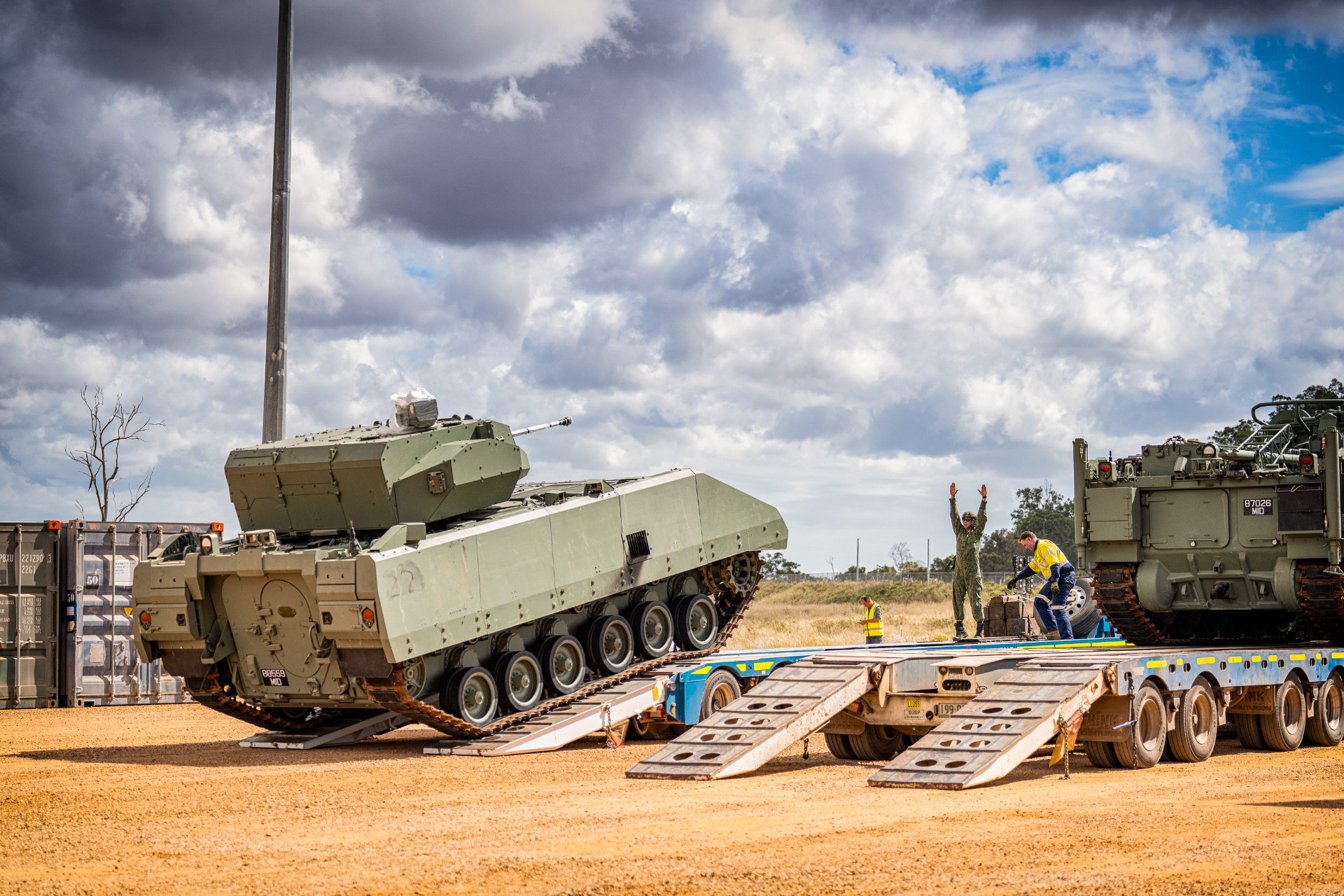
First in, last out at Ex Wallaby 2025
06 Nov 2025
Meet the teams who toil behind the scenes to enable the smooth conduct of the SAF’s biggest unilateral overseas exercise.
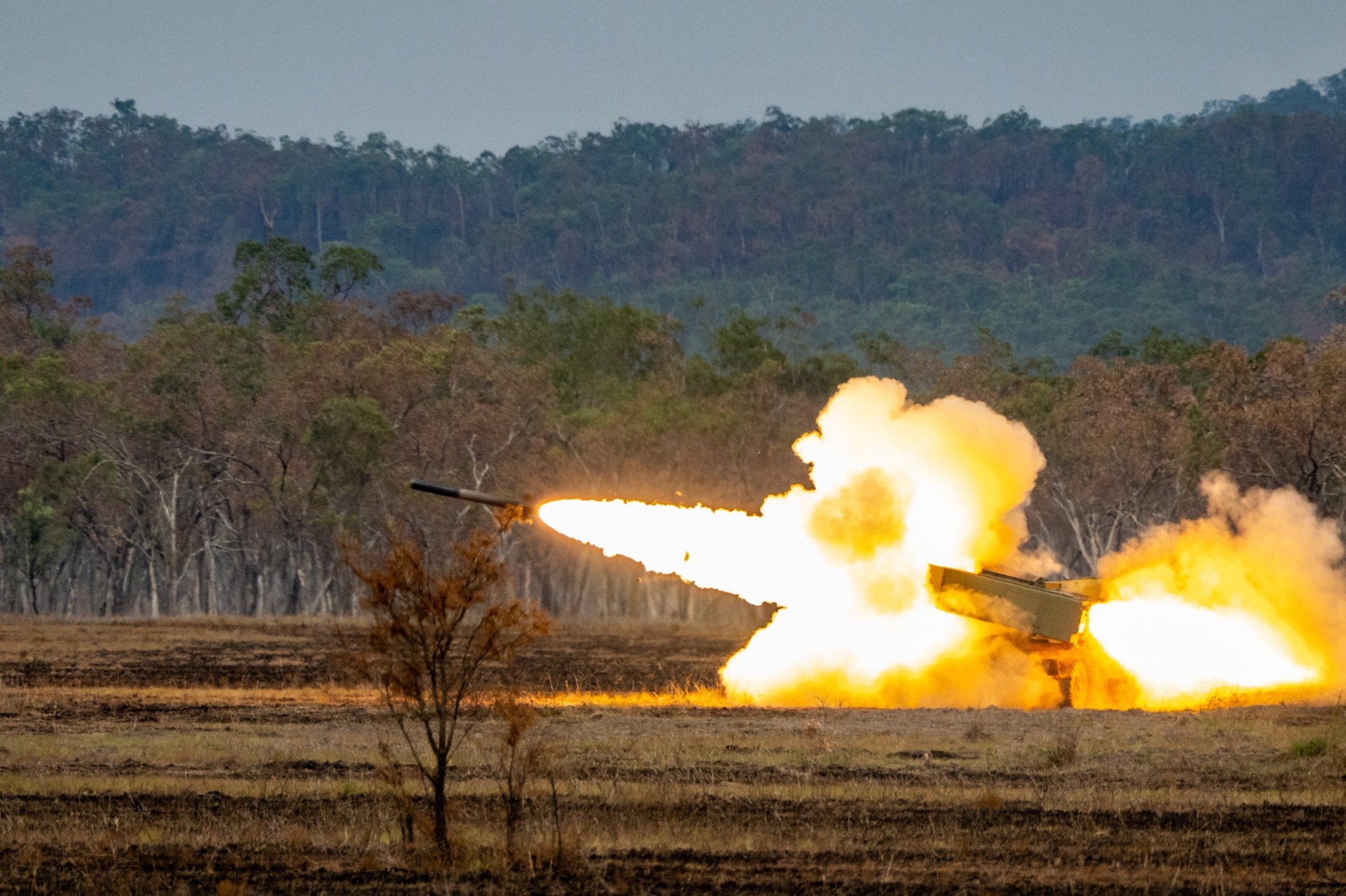
Exercise Wallaby 2025: To see better, shoot faster
31 Oct 2025
The SAF focuses on complex strike missions and multi-domain integration in Exercise Wallaby 2025, the 35th edition of its largest unilateral overseas exercise.
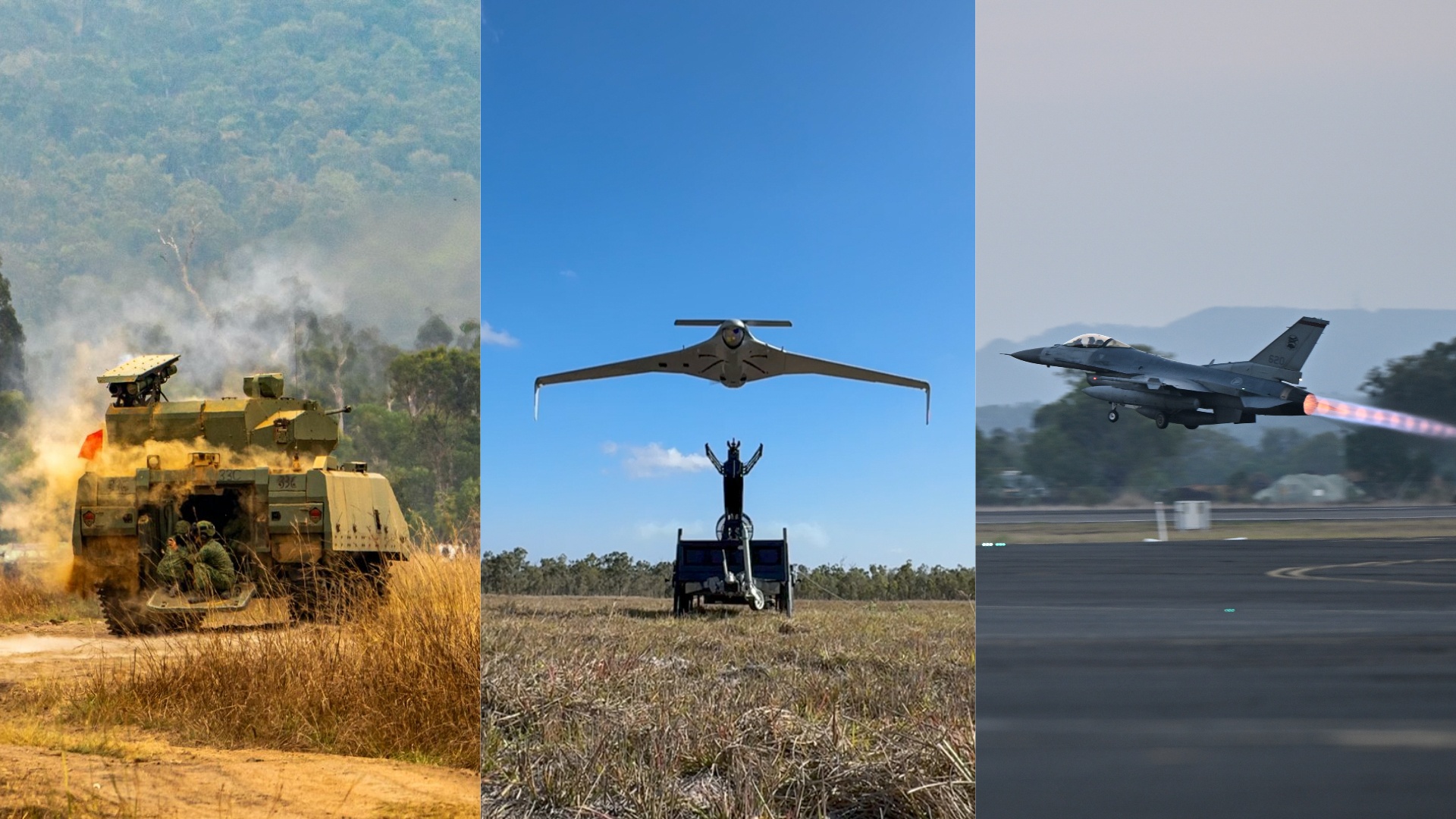
Ex Wallaby 25 – Greater Integration and Complexity
25 Oct 2025
The 35th edition of the SAF’s largest unilateral overseas exercise is an opportunity for expanded scale and deeper integration towards an effective, networked fighting force.


